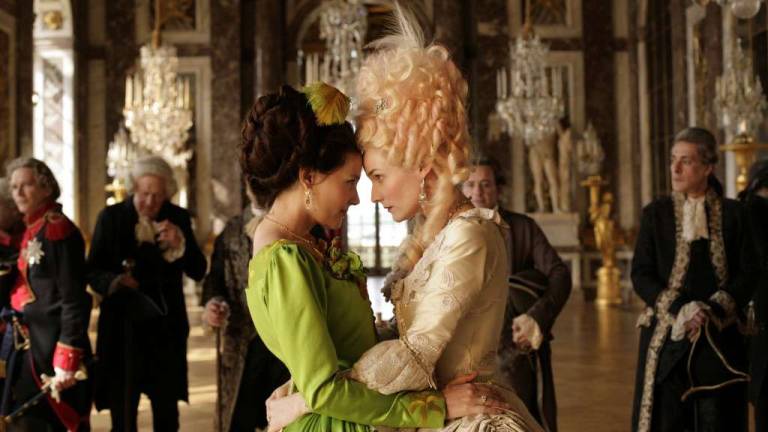French Kiss-Off: "Farewell, My Queen" Treats Its History as a Mystery

Who wouldn't enjoy a three-day tour of Versailles? Perhaps it depends on those three days. For Sidonie Laborde (Léa Seydoux), devoted reader to Marie Antoinette (Diane Kruger), this 72-hour period, beginning on July 14, 1789, marks the end of something both grand and great. Yet the movie that focuses on her, Farewell, My Queen, emphasizes the former far more than the latter. It's a movie that wants to use the personal story of Sidonie's hope and heartbreak to represent the larger turbulence at hand, but ends up being that rare instance where the larger, more epic story is ultimately easier to grab onto the more human one at its center. Farewell is directed by the famed Benoît Jacquot, a director well-versed in evocative imagery and visually acute storytelling, and the film appears to have spared little expense. Jacquot was able to shoot much of the film in Versailles, and so the audience gets a personally escorted view of the inner sanctum at Louis XIV's (Xavier Beauvois) royal court, where thanks to some of her compatriots, Sidonie learns of the chaotic upheaval that would ultimately prove to signal the beginning of the French Revolution. Much of the movie's strength comes from Christian Gasc and Valérie Ranchoux's costumes, Katia Wyszkop's sets, and Romain Winding's stunning set design. But Farewell is not primarily a film about sights; it is a film about people, in particular, the classes of people and how the events of Bastille Day affected them differently. Sidonie, faithful, clever, but also naïve, cannot helped but be swept in by the allure of Marie's lifestyle and the affection she dotes on her lady-in-waiting, albeit in measured amounts. Based by Jacquot and Gilles Taurand on the Chantal Thomas novel, as heads roll outside the palace walls, hearts will break within them, thanks to an underdeveloped triangle consisting of Marie, Sidonie, and Gabrielle de Polignac (a fine Virginie Ledoyen, a graduate of Jacquot's own A Single Girl), a woman to whom Sidonie learns too late she might have paid more attention. We watch Farewell as might a disaster movie, one in which the audience knows things are to get worse long before they get better, and knows this long before it dawns on various characters. But the looming threat of chaos and war is what provides any real ominous threat here, and the personal story feels lacking. The relationships between Sidonie, Gabrielle and Marie feel underdeveloped and eventually formulaic. Seydoux is intriguing but remains a bit of a cipher; Kruger, meanwhile, while well-suited to Marie's caprices, doesn't leave a strong enough impression as the exiled Queen. We neither pity nor revel in her feeling Versailles. In the end, Sidonie truly serves as the perfect kind of tour guide; we know plenty about the historical significance of the surroundings through which have traveled with her, but very little about the inner workings of her own heart.